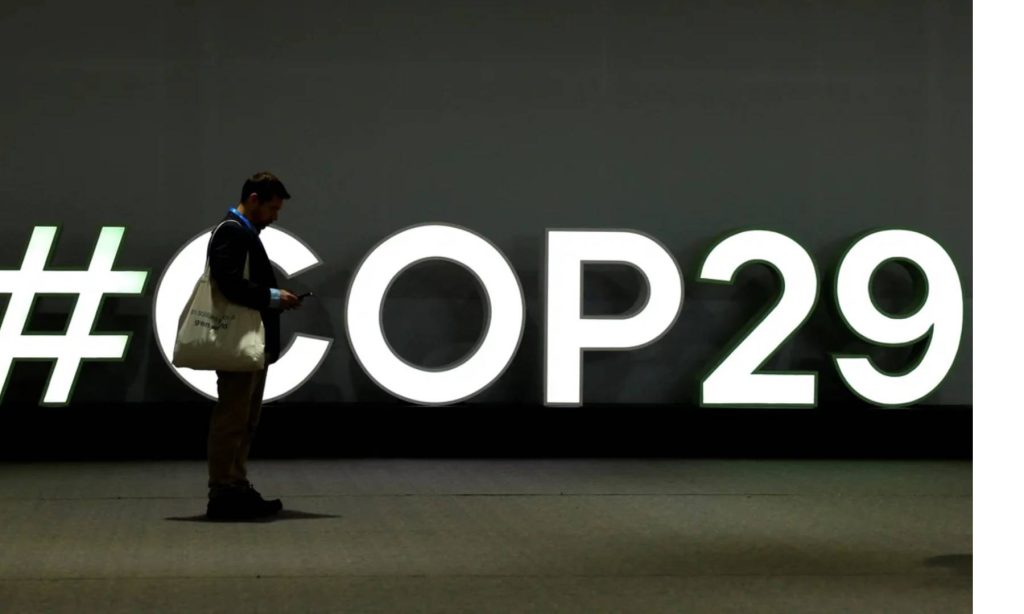The 2024 UN Climate Conference prioritized expanding funding and developing efficient carbon market mechanisms, emphasizing climate finance and carbon markets.
COP29 summit in Baku underscored the global climate agenda, highlighting 2024 as record-high temperature, extreme weather, and complex geopolitical backdrop, emphasizing urgent action against climate change.
COP29 focused on finance, aiming to address climate change urgent issues and strengthen international cooperation. Progress was made in adaptation and loss efforts, a new global climate finance target was set, national contributions strengthened, and COP28 energy pledges advanced.
What was achieved at COP29?
A new global goal for climate finance:
Negotiators aimed to establish a new global climate finance goal for 2025 and beyond, expanding on the $100 billion annual pledge. The goal includes a $1.3 trillion annual contribution from all parties, with developed nations leading the way in delivering $300 billion. However, these targets still don’t meet the financial needs of vulnerable countries and don’t expand on pledges to reduce fossil fuel use.
Establishing a global architecture for carbon markets:
COP29 outlined a global carbon market architecture, ensuring nations approve carbon credit transactions, oversee tracking registries, and ensure environmental integrity. The Paris Agreement Crediting Mechanism now includes mandatory measures for human rights and the environment, requiring Indigenous Peoples’ informed consent. This progress is crucial for creating functional carbon markets and meeting reduction targets.
Ambitious and investable nationally determined contributions:
State delegates were under pressure to set higher standards and be more ambitious for national climate plans. Countries were urged to update their climate commitments by 2025, focusing on higher emissions reduction goals and outcomes from previous COPs. Brazil and the UK announced new contributions and emission reduction targets, while companies like the Alliance of CEO Climate Leaders pushed for more ambitious plans.
Missing momentum on fossil fuels transition and COP28 energy pledges:
Baku is divided over global commitment to move away from fossil fuels and advance COP28 energy targets, despite Brazil’s Group of 20 statement citing UAE consensus. Collaboration is essential for achieving energy targets, and businesses call for demand-side action to boost efficiency.
To achieve tripling renewables targets, future COPs must remove transition barriers, reduce permitting times, increase grid readiness, and provide more project finance to developing nations.
What didn’t move forward?
While COP29 marked progress, critical gaps remain:
1. Transitioning from fossil fuels:
Nations struggled to agree on legally binding fossil fuel subsidies, hindering decarbonization. In 2025, precise deadlines and procedures are needed to align energy markets with international decarbonization goals.
Scaling climate finance:
The consensus on a new climate finance goal is based on consensus, but the distribution and scale of funds, particularly in attracting private sector investment, remain unclear, potentially waning before COP30.
Linking climate and finance:
COP28 highlighted biodiversity and nature-based adaptation strategies. This year’s proceedings focused less on nature, so it will be up to COP30 to pick up steam and connect biodiversity pathways to climate action.
Moving ahead on COP28 energy targets:
Future COPs should collaborate with companies, particularly those in higher-emitting sectors, to clarify national and sectoral targets for triple renewable and double energy efficiency, enabling companies to develop comprehensive energy transition plans.
The way ahead:
2024 was a pivotal year for COP29, COP16 for biodiversity, and COP16 for desertification, allowing world leaders to integrate efforts and pursue sustainable solutions. The upcoming World Economic Forum Annual Meeting in Davos will strengthen collaboration. COP30 in Brazil will build on COP29’s progress, with Brazil representing emerging markets and developing economies. Australia and Turkey are leading contenders for COP31 host for 2026.










